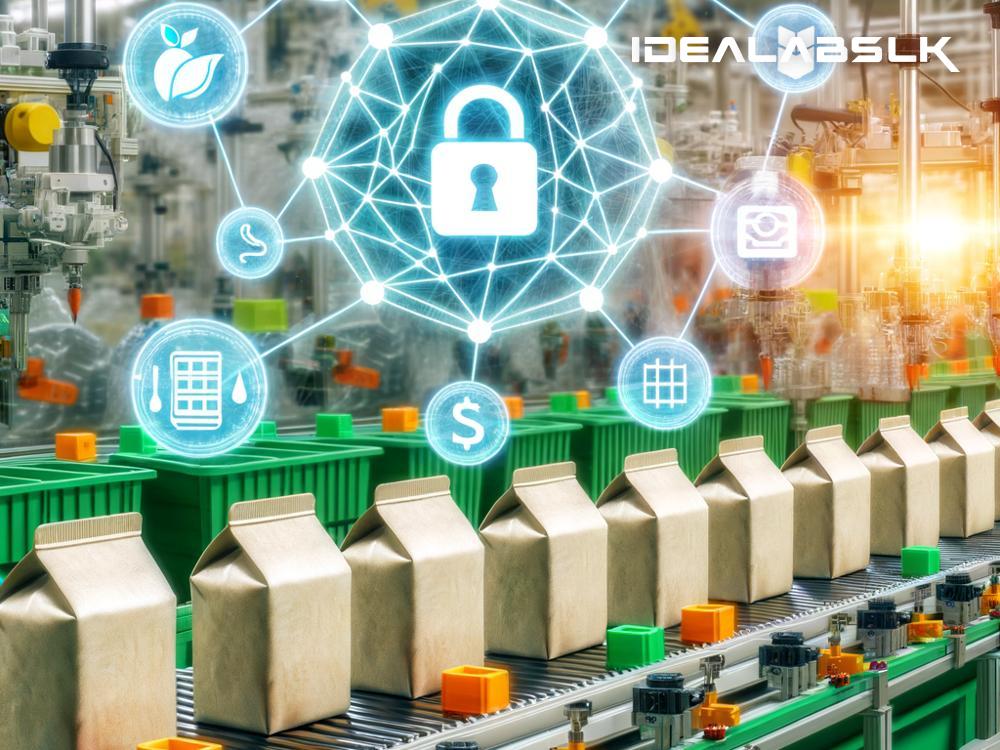The Future of Food Packaging: How Blockchain Can Make it Sustainable
In today's world, environmental consciousness is not just a trend but a necessity. As consumers become more aware of their ecological footprint, the demand for sustainable practices in every aspect of life, including the food they consume, has significantly increased. One area that has seen considerable attention is the packaging of food products. The push for more sustainable packaging solutions has led to innovation and the adoption of various technologies, one of which is blockchain. But what does blockchain have to do with sustainable packaging? Let's dive in!
What is Blockchain?
Before we connect the dots between blockchain and sustainable packaging, let's quickly understand what blockchain is. In simple terms, blockchain is a system of recording information in a way that makes it difficult or impossible to change, hack, or cheat the system. Imagine it as a digital ledger of transactions duplicated and distributed across the entire network of computer systems on the blockchain. Each block in the chain contains several transactions, and every time a new transaction occurs, a record of that transaction is added to every participant's ledger. This technology is best known for powering cryptocurrencies like Bitcoin, but its potential goes far beyond just financial transactions.
The Connection Between Blockchain and Sustainable Packaging
At first glance, blockchain technology and packaging might seem worlds apart, but they are more connected than you might think. The key lies in the ability of blockchain to enhance traceability, transparency, and the verification process. Here's how it can positively impact the sustainability of food packaging:
-
Enhanced Traceability: One of the cornerstone benefits of blockchain is its ability to provide detailed and undeniable traceability of products. In terms of sustainable packaging, this means that companies can track the lifecycle of their packaging materials right from the source to the end-user and beyond (e.g., recycling processes). This level of traceability ensures that the materials used are sustainably sourced, the supply chain practices are environmentally friendly, and the overall carbon footprint of the packaging is minimized.
-
Increased Transparency: Blockchain inherently fosters transparency. By utilizing blockchain, food companies can offer consumers a transparent look into the sustainability of their packaging. Consumers can access information about where the materials were sourced, how they were processed, and even how to properly dispose of or recycle the packaging. This not only empowers consumers to make more informed decisions but also incentivizes companies to adopt more sustainable practices to meet consumer expectations.
-
Robust Verification Processes: The immutable nature of blockchain makes it an excellent tool for verifying the authenticity of claims made by companies about their sustainable packaging practices. Certification bodies can use blockchain to issue and track certifications in a way that is secure and tamper-proof. This reduces the risk of fraudulent claims and ensures that when a product says it's packaged sustainably, it truly is.
Real-World Applications and Benefits
Several forward-thinking companies are already exploring blockchain's potential in creating more eco-friendly packaging solutions. For instance, they're using blockchain to create "smart labels" on food products, which consumers can scan to get the whole story of the packaging's journey. This not only builds trust between consumers and brands but also actively promotes sustainability by showcasing the efforts companies are making.
Moreover, blockchain can play a significant role in the recycling and reusing process of food packaging. By tracking the journey of packaging materials, companies can identify better recycling practices and promote a circular economy, ultimately leading to a significant reduction in waste.
The Road Ahead
While blockchain technology offers exciting possibilities for sustainable packaging, its adoption in the food industry is still in the early stages. However, as technology advances and more companies recognize the potential benefits, we can expect to see broader implementation. This shift towards blockchain-backed sustainability isn't just good for the environment; it's also good for business, fostering innovation, building consumer trust, and potentially opening up new markets.
Conclusion
The integration of blockchain into sustainable packaging practices represents a promising frontier in the quest to reduce the environmental impact of food packaging. By enhancing traceability, transparency, and verification, blockchain can help ensure that sustainable packaging is truly sustainable, thereby supporting environmental conservation while meeting the demands of the conscious consumer. As we move forward, the fusion of technology and sustainability in packaging will undoubtedly play a crucial role in shaping a greener, more eco-friendly food industry.

